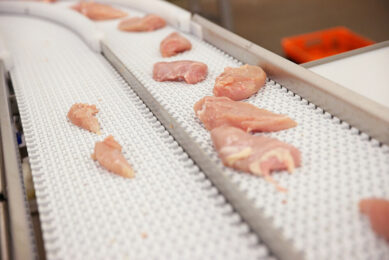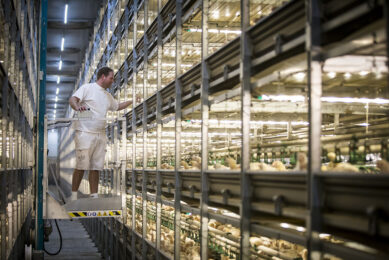Slow growth taste
How easy can a reader been misled? Very easy, I would say. When writing an article it is the duty of a writer to put his thoughts on paper as clearly as possible without leaving the reader in doubt.
Most of the time skilful authors succeed in meeting this goal. Recently, however, when reading my daily newspaper, my attention was drawn to an article about the taste of chicken meat. The article described the results of a 50-person taste panel, which should draw a clear conclusion on whether slow-growing birds tasted better than fast-growing birds.
Four different types of commercially produced chickens, grown and marketed in the Netherlands, were equally prepared and served to the panel. The four birds were: the commercial broiler grown for 6 weeks; the “Volwaard” grown at a larger floor space per bird for 8 weeks; the 12-week old biologically grown Kemper Landhoen; and, the dual purpose Chaamsehoen of almost 26 weeks.
The conclusions from the panel made clear that taste is a rather subjective issue. Not one particular type of chicken was favoured, and the comments were most of the time the same. It was noted that the fast-growing bird produced slightly softer meat, whereas the slow-growing that was easier to chew, while that of slower growing birds had a more explicit taste. There were some more comparisons, but the panel was not able to draw a final conclusion, except from saying that it remains a matter of individual taste.
It also became clear that the preference depends on which part of the bird is eaten and whether you eat it as a snack or as a main course. Leg meat of any type of bird proved to have more taste than breast meat.
It comes as a surprise, then that the introduction of the article did not reflect this conclusion accurately, but rather stated very boldly that slow-growing birds have the best taste. It took me a while to find out whether I had missed something, which proved not to be the case.
The only conclusion I could draw is that the author and the copy writer are probably not the same person and that the copy writer or sub-editor, who did the final editing, wanted to be politically correct and be negative about the commercially produced modern broiler. I was not even surprised about this twist of thoughts, since it is in line with what most political correct and reader-pleasing media people use to show that they, too, are against everything that relates to ‘bio-industry’.
This subjective form of information transfer is one of the many small things that still irritate me when ignorant people try to push their personal opinion in a publication that is expected to be unbiased. At the same time, we have to be realistic and accept that the world around us is what it is, and there is nothing as subjective as ones personal taste.
Join 31,000+ subscribers
Subscribe to our newsletter to stay updated about all the need-to-know content in the poultry sector, three times a week. Beheer
Beheer








 WP Admin
WP Admin  Bewerk bericht
Bewerk bericht